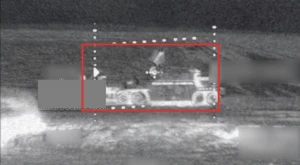
Russia bombards kindergartens, hospitals, schools, and residential buildings in Kharkiv region - Volodymyr Kravchenko
Occupying Russian forces intensify their nighttime shelling of Kharkiv. The death-toll among local civilians climbs ever higher, and residential buildings, hospitals, schools, kindergartens, and local infrastructure bear the brunt of these onslaughts. The picture is similar in cities and villages across the region.
On Thursday, July 7, at night, Russia fired missiles at Kharkiv. Two of them hit a boarding school for visually impaired children.
The day before, another school was seriously damaged by rocket attacks.
On July 5, the building of the Skovoroda Pedagogical University in Saltivka was bombed. A 40-year-old security guard at the institution was killed in the attack.
University buildings damaged in the bombing raid include the library, the museum, the editorial office of the newspaper Teacher, the rector's department, as well as the Hryhorii Kvitka-Osnovianenko Faculty of Ukrainian Language and Literature. Adjacent residential buildings were also damaged.
The border city of one and a half million people has been continuously bombarded by Russian forces since February 24. But during the last month, the intensity of shelling has significantly increased, particularly the shellings at night.
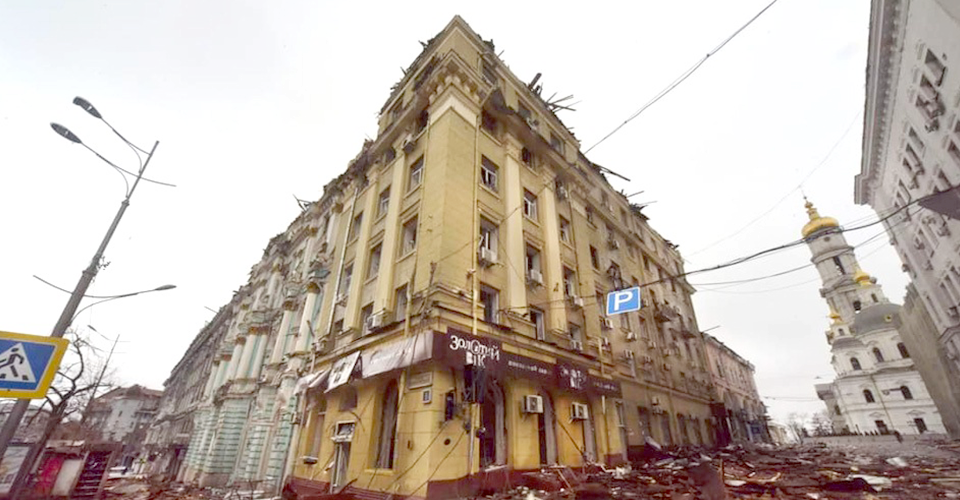
Ukraine celebrates a holiday called Ivan-Kupala on July 7. It is an ancient, pre-Christian celebration marked by all Eastern Slavs in which people jump over bonfires, dance, weave garlands and wreaths, gather herbs, pour spring water over themselves (and each other) and look for"fern flowers".
This year Ivan Kupala was different. Ballistic missiles were dispatched from the border town of Belgorod, land that once belonged to Ukraine. They celebrate Ivan Kupala too, there. But the aggressor seems reluctant to allow their Ukrainian neighbors a night off, even for Ivan Kupala, as social media users in the region commented.
It is an objective fact that Russia intensifies its shelling on any days that normally would see people in Ukraine mark state, religious, national holidays, or historical dates. Residential buildings, universities, schools, hospitals, kindergartens, shopping centers, museums, monuments, sports halls and stadiums, vital infrastructure across the city are being destroyed.
The occupiers "humanely" announce the bombing
Recently Russia has started “announcing” its intentions and openly lets people know about plans to shell areas a day in advance.
So, in early July, the Russian Federation announced that it would attack a multi-story building on Rymarska, a central street in Kharkiv that is also one of the oldest.
According to Russian military "strategists", Ukrainian "Nazis" had taken up residence in one specific building. They said that arsenals of weapons are located there and that "militants" "mock" people, preventing them from leaving this "dangerous location".
Rymarska is in Kharkiv’s historical center. It is not just a building, it is an important architectural monument. Theater premises, a philharmonic concert hall, organ hall, monuments to writers, the Olympic swimming palace, city hall, higher education institutions, gymnasiums, polyclinics, Christian churches are all dotted around the nearby streets, just 100-500 meters away. One of them is a particularly important building dating to Ukraine’s C18th Baroque era. But Russia’s unguided missiles routinely land up to 1,000 meters off target.
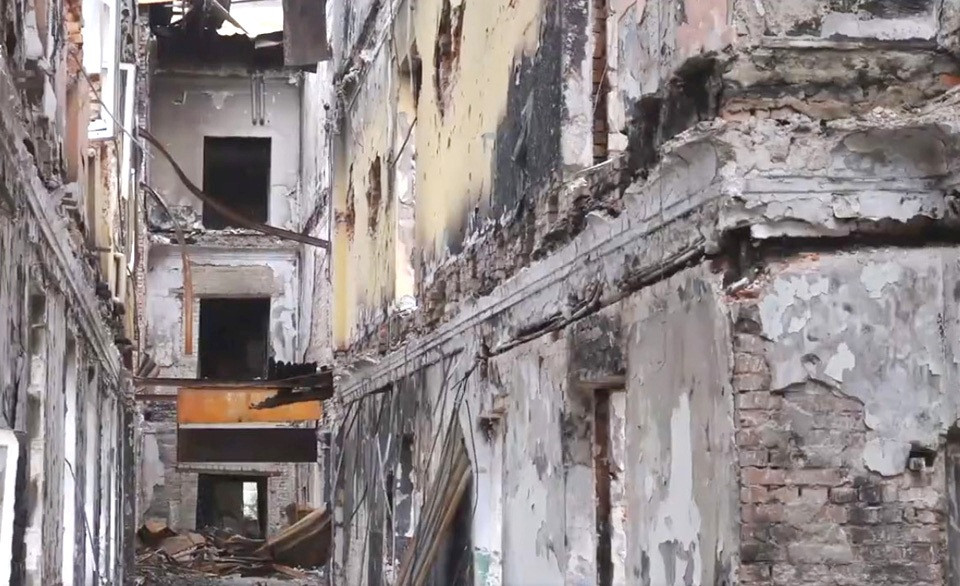
The city is also home to a monastery, a synagogue, large modern shopping and entertainment centers, one of the largest libraries in the country, banks, hotels, shops, a zoo, "decision-making centers", pharmacies, as well as restaurants.
What else can be destroyed by missiles
The great performers Ivan Kozlovsky, Boris Gmyrya, Ivan Patorzhynsky, Maria Lytvynenko-Wolgemut, Mark Reisen, Mykhailo Hryshko, Anatoliy Solovyanenko,Yevgenia Miroshnychenko, Mykola Manoilo, Yevhen Chervonyuk, Maria Stefiuk, Olga Basistyuk all once took to the stage in the Opera House’s old and new premises.
Memorial plaques say that in the early 20th century, renowned singers Mattia Battistini, Feodor Chaliapin, Antonina Neshdanova, Leonid Sobinov, Nadiya Zabela-Vrubel, Iwan Altschewskyj all performed at the Kharkiv Opera.
The walls of houses in the center of Kharkiv and the halls of local theaters bear witness not to the great artists and musicians who performed, but also poets and writers, including those more commonly seen as Russian - Vladimir Mayakovsky, Sergei Yesenin, Andrei Bitov, Robert Rozhdestvensky, Yevgeny Yevtushenko and many others.
In the heart of Kharkiv we also see the Slovo Building (already shelled by Russian forces). In the 1930s, Mykola Khvylovy, Volodymyr Sosyura, Mykola Kulish, Pavlo Tychyna, Ivan Bagryaniy, Les Kurbas, and Yuriy Yanovsky lived here, as did 150 other famous writers, artists, actors, and artists.
In the very center of the city there is also a drama theater, where the legendary Berezil was housed, which was where Les Kurbas, Mykola Kulish, Amvrosii Buchma and a whole galaxy of outstanding directors, artists, actors, and musicians worked.
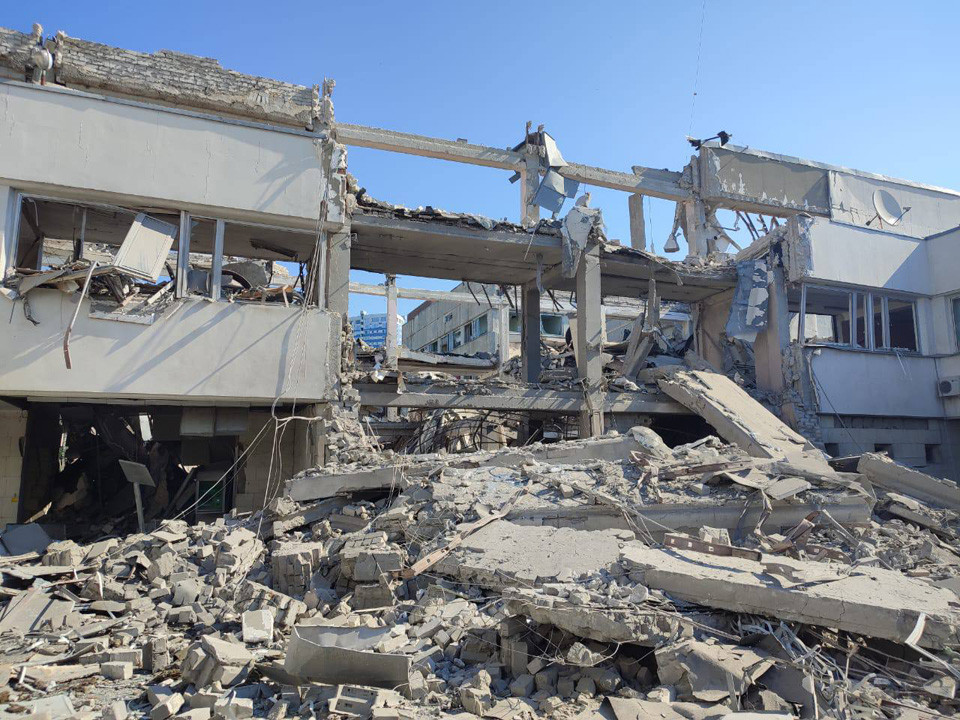
All this, as we can see, is now at very real risk of being destroyed or buried forever by the unceasing Russian missile attacks, artillery and air strikes.
Nazis were already tried in Kharkiv
In December 1943, the Kharkiv Tribunal was held in the city's oldest theater-opera building on Rymarska Street, the first trial of Nazi war criminals.
The process was open to the public. It was attended by numerous representatives of foreign publications, in particular, correspondents writing for America’s The New York Times, Britain’s The Times, Sunday Express and Daily Express, as well as radio broadcasters from France and America.
Prosecutors and investigators of the Kharkiv Region record Russia's war crimes
During the full-scale invasion, from February 24 to today, early July 2022, 2,450 war crimes committed by the Russian occupiers in the Kharkiv region have been recorded.
Today, almost 5,500 buildings have been completely or partially destroyed in the region. They include, 2,705 high-rise buildings, 1,462 private residential buildings, 453 educational institutions (including 219 schools, not counting the two destroyed in recent days), and a further 96 are health care institutions.
Kharkiv region prosecutor Oleksandr Filchakov presented this data at a regional council session on July 4.
It is known that at least 932 Kharkiv civilians have been killed in Russian attacks, including 45 children, and 1,743 more people have been injured (146 of them children).
The problem of identifying bodies and searching for missing persons, including children, is a serious one, as they may be in the occupied territories or outside Ukraine. The prosecutor's office is investigating 500 cases of local residents currently classed as missing.
Investigators in the Kharkiv region note their suspicions that the laws and customs of war have been violated. Two criminals have already been sentenced. Prosecutors have inspected more than 1,500 crime scenes, carried out about 3,000 interviews and ordered more than 2,000 forensic examinations. In Kharkiv itself, almost all the sites shelled have been inspected.
38 people have been formally notified that they are suspected of violations in this area. The Prosecutor's Office leads the criminal proceedings into the 2,368 instances in which Russian servicemen have been identified as having violated the laws and customs of war, under Article 438 of Ukraine’s Criminal Code.
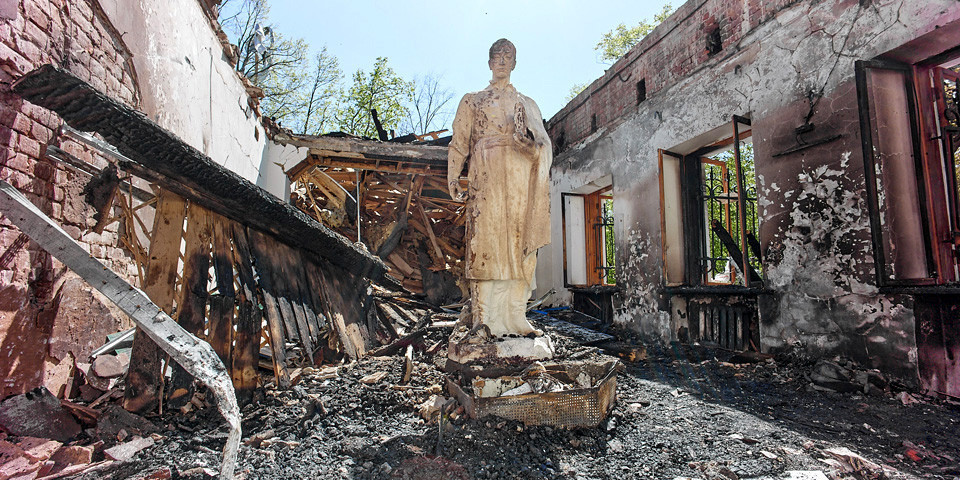
Among all these crimes, 1,668 relate to attacks on or bombings of civilian infrastructure, 40 to murders, 67 to illegal deprivation of liberty, 112 to looting, and three cases of rape were also recorded.
As for the suspects, nine individuals have already been notified, seven of whom are Russian Army servicemen and two are members of the illegal Russia-backed armed formation of the so-called "DPR". An indictment has been sent to the court against two people who have already been convicted.
According to the prosecutor, the number of people who disappeared during the war is still unknown. Police say the number of statements given increases daily. This especially applies to the occupied territories.
"The number of missing persons reports is increasing. The police are recording all these reports, we are conducting examinations, and taking samples for the possible identification of corpses, of which there are still a significant number. The number of unidentified corpses is increasing almost every day," the Chief of Police of the Kharkiv Region, Volodymyr Tymoshko, informs.
The investigators also record other crimes related to violations of the laws and customs of war, namely the removal of grain and various, including agricultural, equipment by Russian forces.
In particular, it is reported that about 1,500 tons of grain were exported from the temporarily occupied village of Makariv to Russia. The occupiers stole about 100 pieces of equipment (vehicles, equipment) from the Izyum Forestry and took them to Russia.
*** While this material was being prepared, it became known that on the evening of July 7, Russian forces bombarded Kharkiv with new powerful strikes from multiple launch rocket systems.
"Residential buildings, garages, and containers were damaged. As a result of shelling by the Russian occupiers, three civilians were killed and five were injured," - the head of the Regional Military Administration Oleh Synyehubov said.
- News













